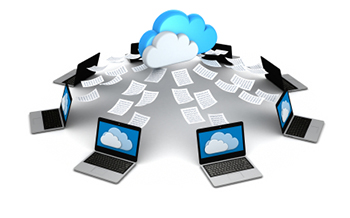
Why SMBs Must Proactively Address the Threat of Mobile Hacks
More cyber criminals are targeting small-to-medium sized businesses. One reason for this is too many workplaces have insufficient bring-your-own-device (BYOD) policies in place. Some have none at all. Although firms are generally more knowledgeable about network security risks than in years past, they still woefully underestimate the security vulnerabilities linked to mobile devices like smartphones and tablets.This is a real cause for concern since data breaches have the ability to put many already financially challenged SMBs out of business.
If customer/client data has been breached, there could be potential litigation costs, and naturally, lost goodwill and an irreparable hit to brand or company reputation.
Don’t Just Say You’re Worried About the Bad Guys... Deal With Them
SMBs say they view network security as a major priority but their inaction when it comes to mobile devices paints a different picture. A recent study found that only 16% of SMBs have a mobility policy in place.
Despite the fact that stolen devices are a major problem in today’s mobile workforce, only 37% of mobility policies enforced today have a clear protocol outlined for lost devices.
Even more troubling is the fact that those firms who have implemented mobility policies have initiated plans with some very obvious flaws.
Key components of a mobility policy such as personal device use, public Wi-Fi accessibility, and data transmission and storage are often omitted from many policies.
Thankfully, most SMB cybercrimes can be avoided with a comprehensive mobility policy and the help of mobile endpoint mobile device management services.
A Mobility Policy Is All About Acceptable/Unacceptable Behaviors
Your initial mobility policy doesn’t have to be all encompassing. There should be room for modifications, as things will evolve over time. Start small by laying some basic usage ground rules, defining acceptable devices and protocols for setting passwords for devices and downloading third-party apps. Define what data belongs to the company and how it’s to be edited, saved, and shared. Be sure to enforce these policies and detail the repercussions for abuse.
Features of Mobile Device Management Services
MDM services are available at an affordable cost. These services help IT managers identify and monitor the mobile devices accessing their network. This centralized management makes it easier to get each device configured for business access to securely share and update documents and content. MDM services proactively secure mobile devices by:
- Specifying password policy and enforcing encryption settings
- Detecting and restricting tampered devices
- Remotely locating, locking, and wiping out lost or stolen devices
- Removing corporate data from any system while leaving personal data intact
- Enabling real time diagnosis/resolution of device, user, or app issues

Comments
Post a Comment